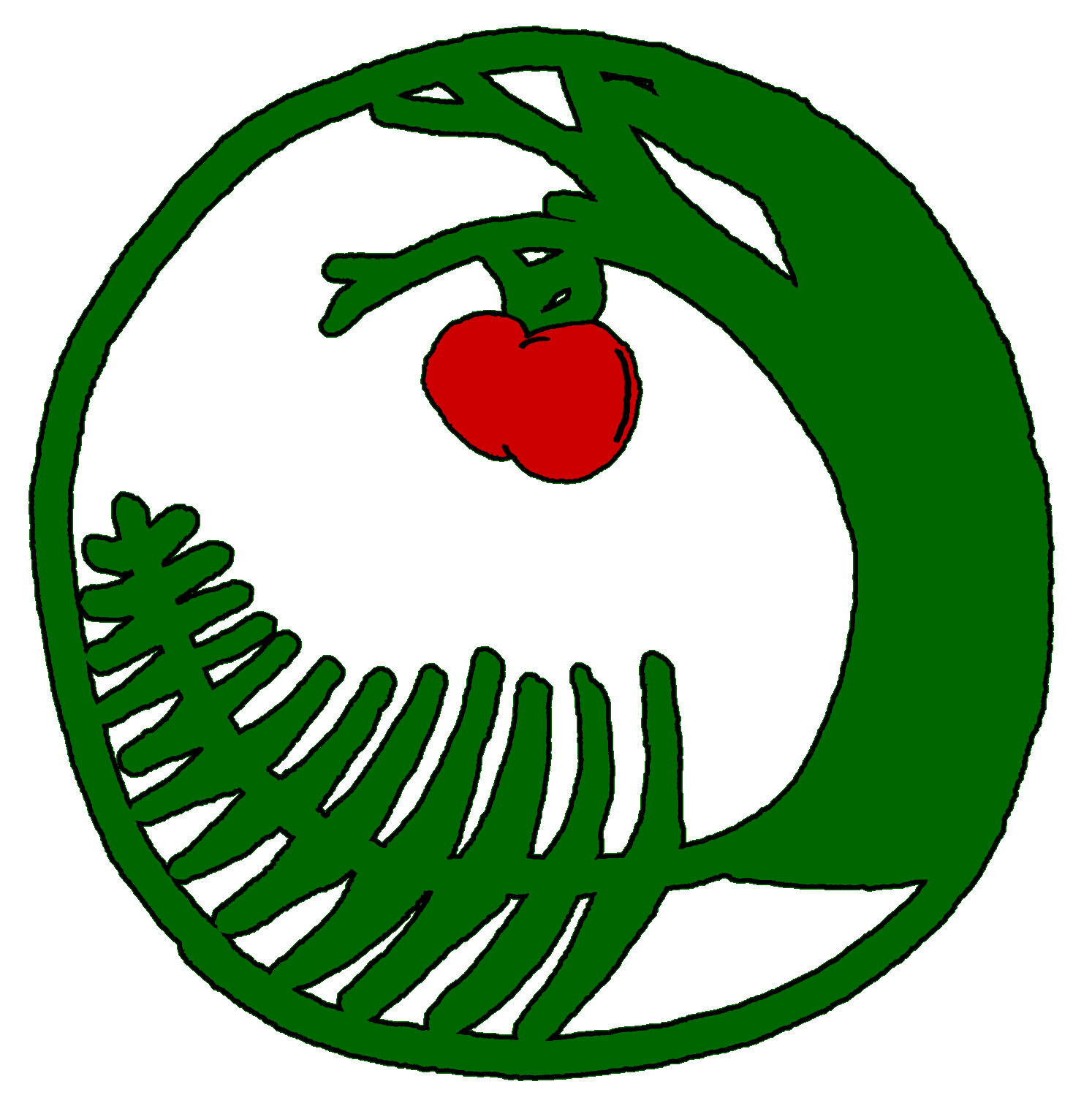Although American persimmons are smaller than their Asian counterparts found in grocery stores, they are just as sweet, juicy, and delicious! While the Japanese Fuyu or Hachiya are grown... more->
Fern Hill Nursery and Botanical Sanctuary
Edible, medicinal, and native plants for the Pacific Northwest
We spent 13 years building an abundant fruit forest, annual veggie beds, perennial medicinal herbs, and a healthy mixed hardwood-coniferous forest and now we've sold our property to the next stewards so that we can begin a new homesteading project in Vermont closer to our best friends and their kids.
Don't worry - we plan to keep this website up and running so that our customers can reference what we've written about our plants!
We'll let you know once we re-start a farm in Vermont!
Adapted to heavy clay soil
Douglas mugwort is my favorite of the species of Artemisia that we grow. It is native to sunny streambanks and partly shady riparian areas of several western states from Oregon to Mexico... more->
Barbed skullcap is native to southeast Asia including China and Taiwan, often growing on the edges of rice paddies. The fresh plant is used as a vulnerary to help heal wounds and as an anti-... more->
Soft rush is a great native wetland plant to have around a pond or swale. Its round, straight stems form a graceful fountain shape, while its rhizomes decrease soil erosion. The roots and stems... more->
Henderson's checkermallow is commonly found along the Washington coast, but a few populations grow further south here along the Oregon coast. In the hollyhock family, this perennial grows up to... more->
A very vigorous perennial native to much of North America, Canada goldenrod can quickly colonize sunny, moist meadows and gardens. It's bright and canary yellow inflorescences grow upwards from... more->
'Himrod' is an excellent sweet green seedless table grape. It is very productive. Fruits turn golden when ripe, which is usually late summer. It is self-pollinating. Very easy to grow and... more->
Canadice is a delicious seedless red table grape. It ripens at the later end of grape season, in early fall. Canadice is self-pollinating. Very easy to grow and drought tolerant. more->
Glenora is a concord -type seedless grape. Grapes are medium to large size and have a deep dark blue color. It is self-pollinating. Very easy to grow and drought tolerant. more->
Although some refer to it as St. John’s Wort, Susan Weed conjures up the bravery of Joan of Arc in reference to the healing properties of this herb. It is listed as a noxious weed in many western... more->
If I were stranded with only one plant to choose for my garden, broad-leaved plantain would be my top choice. The whole plant is completely edible, raw and cooked. I've used it to help heal... more->
This variety of red raspberry bears medium sized, juicy fruit. This variety was developed especially for resistence to phytopthora rot and other fungal diseases that proliferate in wet soil, so... more->
Seaberries are tart and delicious golden fruit about the size of a lentil, borne in large quantities along the thorny stems of this shrub. The berries are packed with fifteen times the vitamin C... more->
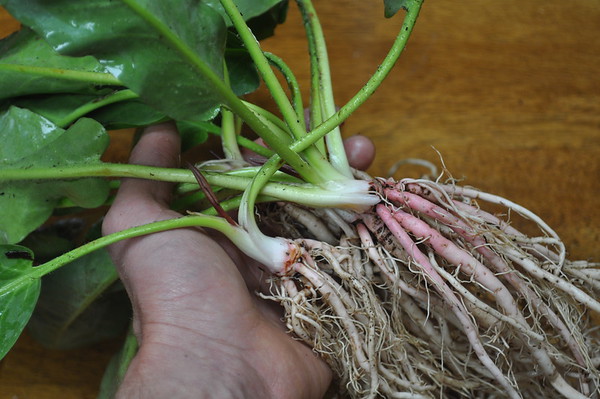
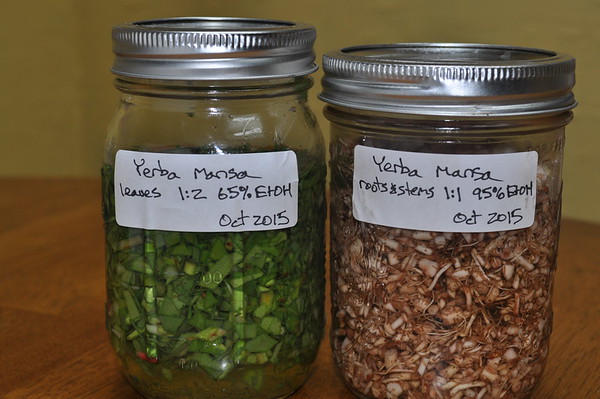
Yerba mansa is a creeping herbaceous perennial with white flowers that prefers wet soil and warm sun. Native to California and the Southwest, in our climate it may do best grown in a... more->

This perennial has slimy roots and leaves that are used externally for bruises, sprains, and dry, irritated skin. Russian comfrey has deep roots to draw nutrients to the surface, and makes great... more->
You may be familiar with the strong flavor of this traditional perennial vegetable. The root, grated and made into a condiment to help with digetion, it is often served with meat. We like to... more->
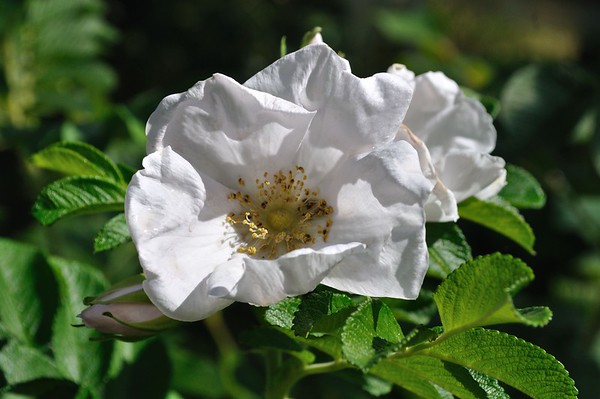
Rugosa rose is a suckering shrub native to asia. It has large and beautiful blooms and the largest rose hips of any rose we know. The rose hips are high in vitamin C and can be eaten fresh or... more->
Pacific waxmyrtle is an evergeen shrub/small tree native to the west coast of North America. It can grow 5-30 feet tall and has sticky leaves and a waxy wrinkled purple berry. It is a great... more->
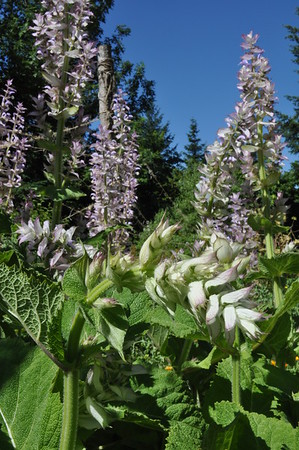
With the sweet and spicy aroma of grapefruit and pine, clary sage brightens our day with its scent as well as with its spikes of white and purple flowers. This biennial starts out the first year... more->
While you can find dozens of varieties of mint for your garden, we focus on cultivating peppermint because it is the best mint for soothing upset stomachs, relieving headaches, and cooling... more->
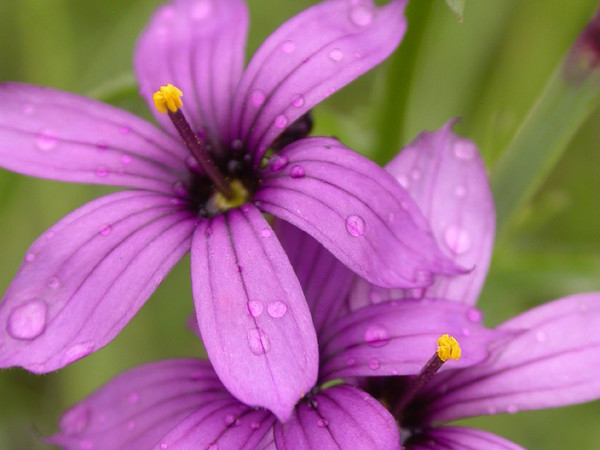
A small but beautiful perennial native wildflower that prefers moist soil and sun, blue eyed grass grows less than a foot tall and makes clusters of small purple flowers in early summer. A great... more->
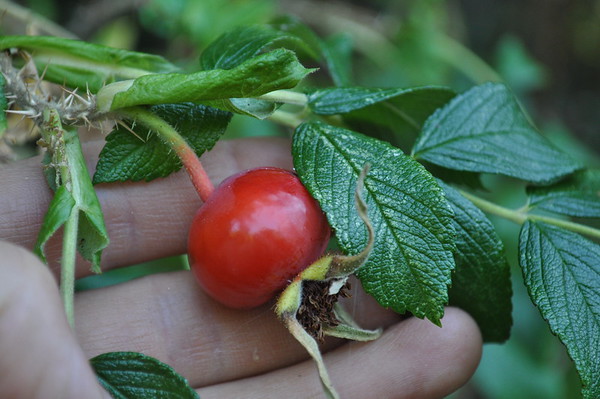
Rugosa rose is a suckering shrub native to Asia. It has large and beautiful blooms and the largest rose hips of any rose we know. The rose hips are high in vitamin C and can be eaten fresh or... more->
A broad leaf evergreen ground cover, kinnikinnick is very hardy. It thrives in partial shade and will spread along the ground or grow along a slope, providing some erosion control. Drought... more->
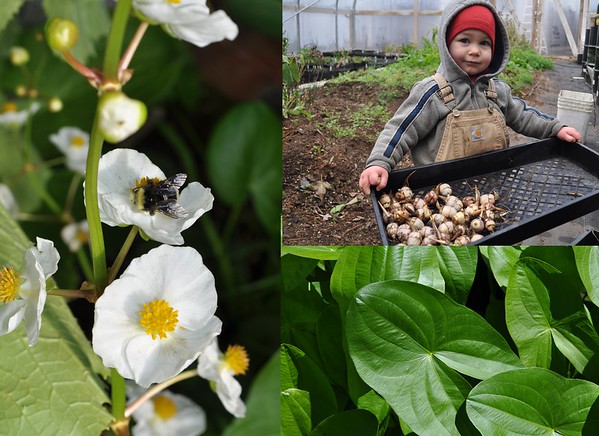
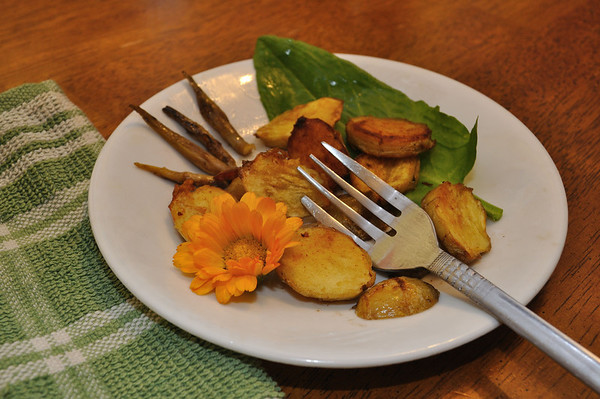
Wapato is a perennial plant that is native throughout North America. Historically, it was a staple food crop for people wherever it grew and continues to be a popular native food plant. Tubers... more->

This perennial produces gorgeous purple flowering stalks in full sun or part shade. A Willamette Valley native, it tolerates drought and poor soil with root nodules that fix nitrogen. Deer... more->
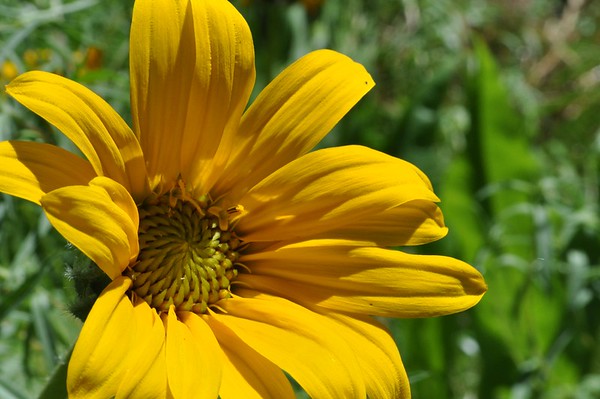
A sunflower-like native wildflower, narrow leaved mule's ears grows in grasslands and meadows in the fields and foot hills of the Willamette Valley. It is an herbaceous perennial and each year... more->

A rudbeckia native to Oregon, this wildflower has a unique bloom that resembles Echinacea or Rdbeckia but with no petals. A perennial plant, when grown in full sun and garden soil, flower stalks... more->

This is the official mugwort native to temperate Europe, Asia, and north Africa often referenced in witches spells and potions. It is a very strong cooling bitter that I like to use in apple... more->
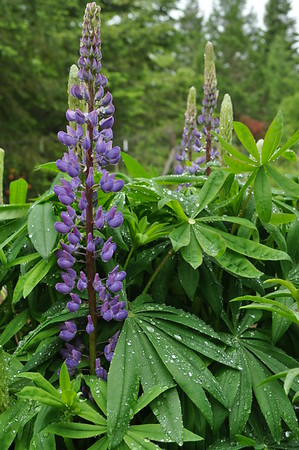
This perennial produces massive flowering stalks several feet tall that smell sweet and attract bees. Native to wetlands in the Willamette Valley and the Pacific Northwest, it performs really... more->
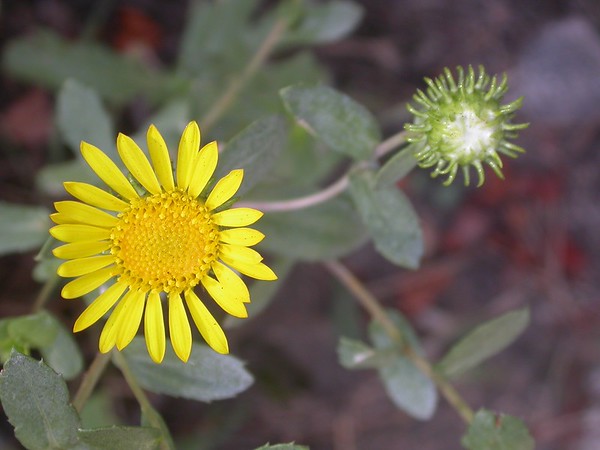
This native perennial in the sunflower family grows into a small shrub each season, bearing yellow flowers covered in sticky white resin. It thrives in sunny spots with moisture and tolerates... more->

A wonderfully fragrant native shrub, western spicebush is an open, deciduous shrub that tolerates part shade and is deer resistant. Burgunday flowers bloom late spring to early summer and smell... more->
Sweetgrass is native to northern North America and Eurasia. It is a very hardy spreading perennial grass that his a history of multiple uses by native Americans and Europeans. We reccomend that... more->
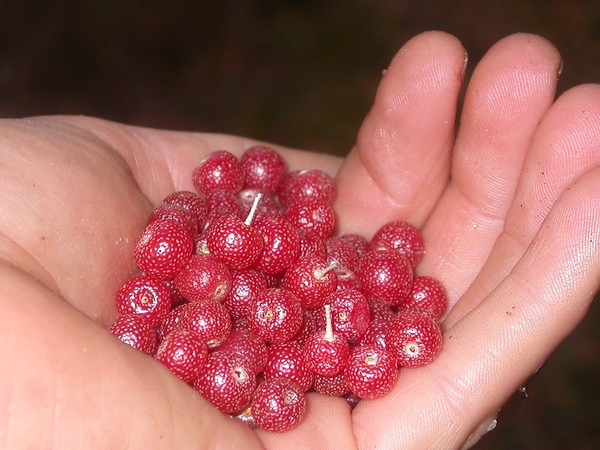
Goumi plants are well known in the Northwest permaculture community for being great nitrogen fixing shrubs with a much lower chance for spreading by birds. These shrubs can grow up to 12 feet or... more->

This currant is native to the Northwest, growing along streams in partial shade. The delicate pink flowers bloom in spring and the delicious purple fruit ripens in early summer. It does not have... more->
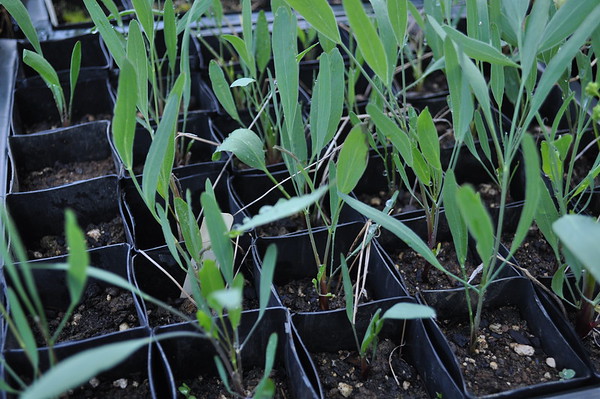
I really like the parsley-like taste of this edible perennial in the carrot family. Another common name is pestle-parsley. It's also native to wet meadows and well-drained hillsides in the... more->

Native to sunny meadows and dappled shade of open woodlands in the Willamette Valley, meadow checkermallow created a gorgeous display of light pink blossoms up to 6 feet tall. In the shade it may... more->
This hardy deciduous shrub is easy to grow in our climate. Deer tolerant and drought tolerant, it blooms for a very long time through spring into fall. We have two varieties- one that blooms... more->
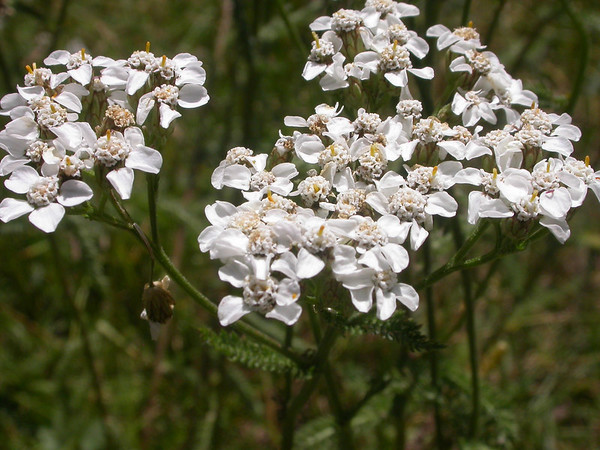
Yarrow is a flowering perennial in the sunflower family. Feathery green basal leaves are present in our climate throughout the year. Taller leaves begin to grow in early spring, and flower stalks... more->
Native to the Pacific Northwest, thimbleberries produce delicate, thimble shaped raspberry-like fruit atop canes up to 5 feet tall. The pretty white flowers in spring brighten up shady corners of... more->
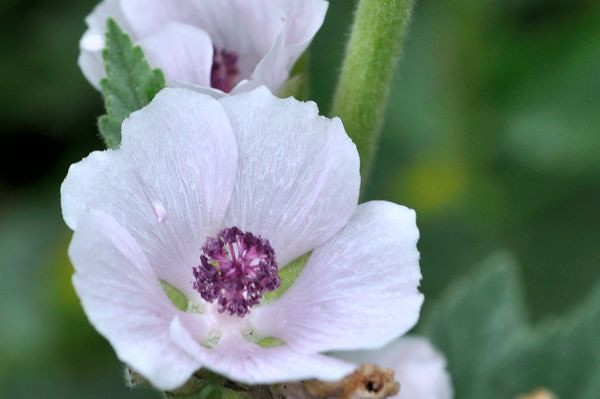
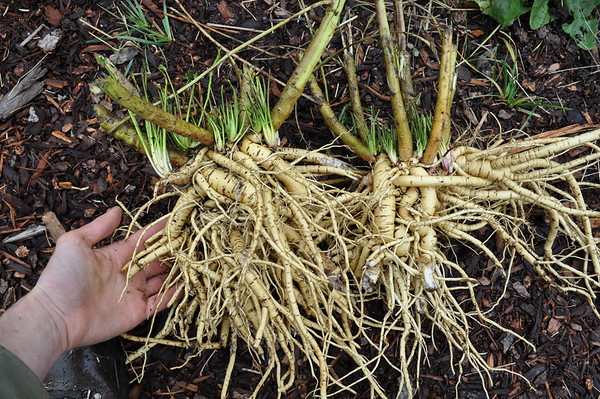
This perennial herb has soft leaves, beautiful hibiscus-like white and pink flowers, and provides a healing herbal medicine. Marshmallow roots are the original source of the slimy mucilage used... more->
